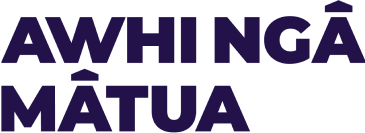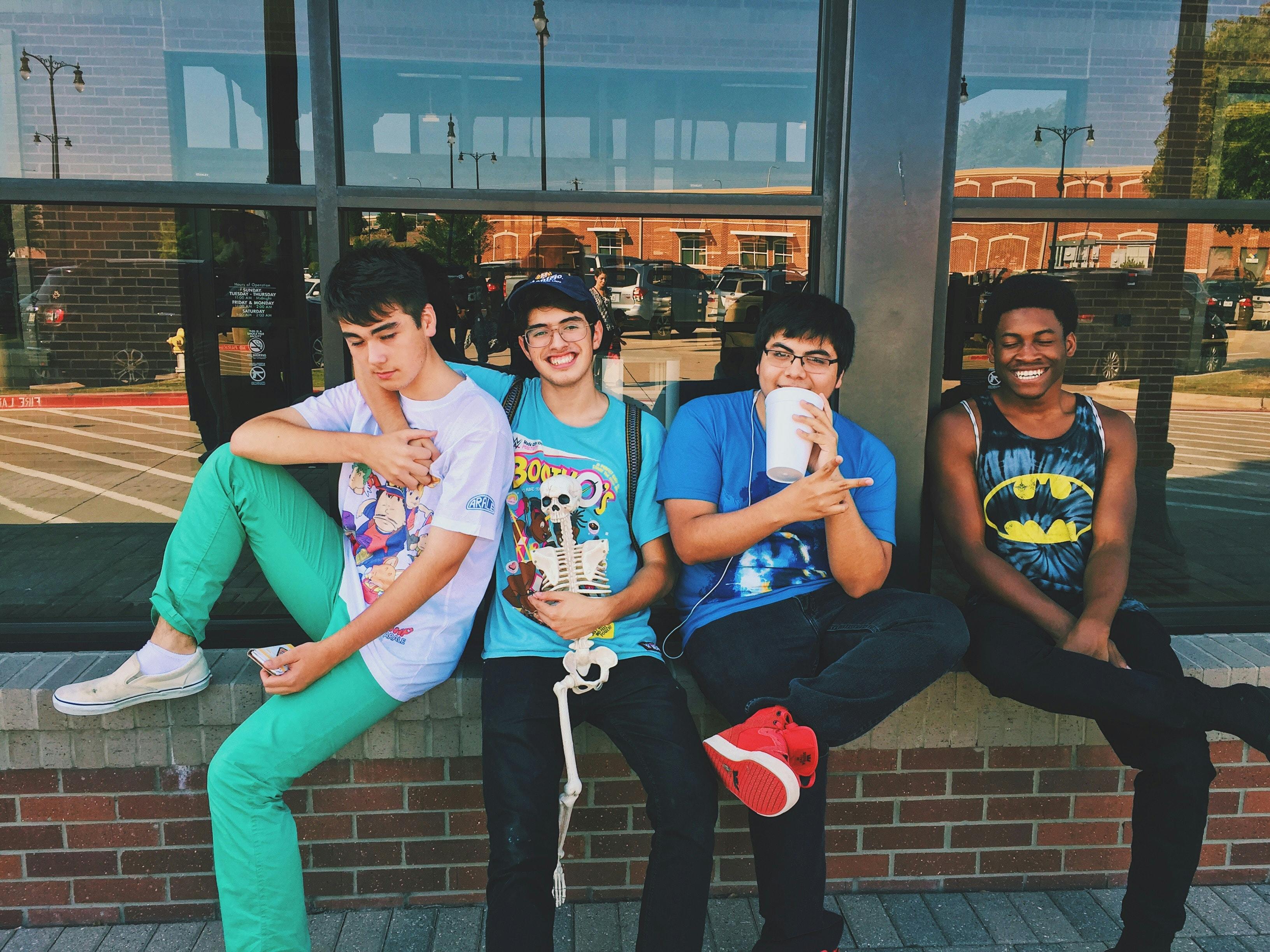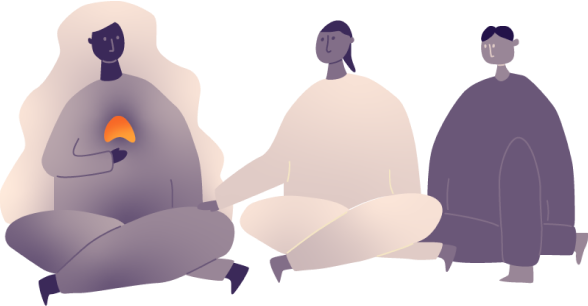Awhi is still in development, we'd love your feedback and suggestions. Let us know.
My teenager wants to have a boyfriend/girlfriend, but I think they might get hurt - what can I do?
Teenagers are prone to having crushes, being rejected, experimenting with sex, going on dates, and then moving on to the next infatuation.
It may be hard for you as a parent, but your disabled child has as much right to have their heart broken as any other teen!
Relationships, both romantic and non-sexual, are where we learn our negotiation skills as well as how to be empathetic and caring. They are also where we learn the importance of being assertive and true to ourselves and to reap the benefits of intimacy and connection.
Supporting your child to have good relationship skills, and creating opportunities for them to develop those skills, is crucial.
If your teenager has not shown any interest in developing romantic interests, think about, whether inadvertently you may have given them the message that in some way these types of relationships are not for them.
Protecting your child is a natural instinct, but we need to honour, respect and encourage their desire to become an active romantic and sexual being.
What can we do?
If your child hasn’t mentioned any crushes or love interests to you, you may need to initiate conversations on the topic. Perhaps they’re too shy or embarrassed or think you won’t approve. Let them know you’re interested in whatever they have to tell you, without judgement or criticism. They may be confused or exploring their sexual identity – let them know they’ve got your support.
Explain the social rules around sex and dating. This means knowing about boundaries in different relationships – good and bad touch, consensual sex, interpersonal space, knowing the difference between a friendly and a romantic relationship.
Teach them about the stepping stones of a relationship from an initial attraction, to asking someone out, getting to know them and to gradually developing intimacy.
Help them with the more subtle aspects of dating and relating – reading other people’s body language, understanding and respecting other people’s emotions and responses.
Answer fully any questions they have about their own developing bodies and sexuality. Make sure they know about contraception, how to prevent sexually transmitted infections or diseases. Knowing about good hygiene and self-care is also a must.
Consider enlisting some of their peers or family members to role-play how they might behave in certain situations. For example, they might practice how to ask someone out on a date. Or they might role-play how they could respond in an argument with a partner.
Help them to identify and cope with feelings that may seem overwhelming at the time – such as hurt and anger when a relationship comes to an end but is not of their choosing, or when they themselves feel unhappy or trapped in a relationship.
Build their self-esteem by allowing them to make their own choices, to increase their autonomy and to express their own personal tastes and preferences.
While all of the above are important, they are redundant unless your child has opportunities to make the romantic connections they desire.
Disabled and neurodivergent teens can be socially isolated, and it can be more difficult for them to engage with the world physically and emotionally. This is where they may need your support the most. So do your best to get them to dances, sporting and community events, to join interest groups and possibly consider online dating if they're over 18.
The teenage years are when we earn our chops when it comes to learning good relationship skills, which will serve us well for the rest of our lives. Our sense of well-being is largely dependent on our ability to build and maintain positive relationships.
‘We cannot live without relationships, and we cannot live well without high-quality relationships’ – Leslie Walker Hirsch
You might also be interested in the podcast 'Why are you so obsessed with my sex life? Disability and Dating, produced by Auckland-based disability advocates Olivia Shivas and Rebecca Duder.
For more on puberty, the following articles are available on Awhi Nga Matua.
· How can I support my teenage disabled/autistic child explore their sexuality?
· How can I help my disabled/autistic child navigate the emotional storms of puberty?
· Help! My teenager is using pornography and I don’t know what to do?
· Help! How can I teach my disabled/autistic teenager that good hygiene is important?
· How can I help my disabled/autistic child manage their periods?
· Help! How can I teach my child what’s okay and what’s not, when it comes to masturbation?
· My child is going through puberty – what is appropriate for their intimate care plan?
· How can I help my disabled child with their body image?
You might also find the resources below useful, which includes books from the IHC Library as well as helpful website and helpline numbers. Or contact the IHC library direct to have a chat about what you need on 0800 442 442 or email: Librarian@ihc.org.nz.
Kids’ Books from the IHC Library
· Things Ellie Likes – A book about sexuality and masturbation for girls and young women with autism and related conditions - Kate E. Reynolds, illustrated by Jonathan Powell
· _Things Tom Likes _– A book about sexuality and masturbation for boys and young men with autism and related conditions - Kate E. Reynolds, illustrated by Jonathan Powell
· Growing Up Great! The Ultimate Puberty Book for Boys – Scott Todnem
· The Growing Up Guide for Girls – What Girls on the Autism Spectrum Need to know! - Davida Hartman, illustrated by Margaret Anne Suggs
· Secret Boys' business – second edition - Rose Stewart, Fay Angelo, Heather Anderson, illustrated by Jeff Taylor
· _More Secret Girls’ Business _- Rose Stewart, Fay Angelo, Heather Anderson, illustrated by Jeff Taylor
· _Special Girls’ Business _– This book has been written for girls with special needs - Rose Stewart, Fay Angelo, Heather Anderson, illustrated by Julie Davey
· Special Boys’ Business – This book has been written for boys with special needs - Rose Stewart, Fay Angelo, Heather Anderson, illustrated by Jeff Taylor
· _Puberty and Special Girls – This book has been written for girls with special needs - _Rose Stewart, Fay Angelo, Heather Anderson, illustrated by Jeff Taylor
· The Autism-Friendly Guide to Periods – Robyn Steward
· Boyfriends + Girlfriends – A guide to dating for people with disabilities – Terri Couwenhoven
· Leroy Learns about the Big 'P'** **- John Hibbs
· _The Boys’ Guide to Growing Up _– Choices and Changes during Puberty – Terri Couwenhoven
· All about Growing Up – Family Planning NZ
· _The Girls’ Guide to Growing Up _– Choices and Changes in the Tween Years – Terri Couwenhoven
** **
Books for Adults from the IHC Library
· When Young People with Intellectual Disabilities and Autism Hit Puberty – A Parents' Q&A Guide to Health, Sexuality and Relationships – Freddy Jackson Brown, Sarah Brown
· _Safety and Consent for Kids and Teens with Autism or Special Needs _– A Parents’ Guide – Debra S. Jacobs
· Sexuality – Your Sons and Daughters with Intellectual Disabilities – Karin Melberg Schwier, Dave Hingsburger
· The Facts of Life and More – Sexuality and Intimacy for People with Intellectual Disabilities – Leslie Walker-Hirsch
· _Masturbation, Autism and Learning Disabilities – A Guide for Parents and Professionals _– Mel Gadd
· Sex and Relationships Education for Young People and Adults with Intellectual disabilities and Autism -Dr Kelly Asagba, Professor Jan Burns, Dr Sophie Doswell
· Hygiene and Related Behaviours for Children and Adolescents with Autism Spectrum and related Disorders - Kelly Mahlere
· Relationship Building and Sexual Awareness for Kids with Autism – Susan Heighway, Susan Kidd Webster
· Sexuality and Learning Disabilities – A Handbook - edited by Claire Bates
· Sexuality and Intellectual disabilities – A guide for Professionals – Andrew Maxwell Triska
· Let's Talk about Sex - Dr Sarah Ashworth, Dr Hannah Carton
· Intellectual disability and the right to a sexual life – A Continuation of the Autonomy/Paternalism Debate - Simon Foley
** **
DVDs from the IHC Library (also available for online streaming)
· Tara Grows Up – A guide to periods and puberty for young women with intellectual disabilities - IHC
· Billy Grows Up – A guide to puberty for boys and young men with intellectual disabilities -IHC
** **
Helpful websites:
· Body Image Movement: www.bodyimagemovement.com
· KidsHealth: www.kidshealth.org.nz/sexual-behaviour-children-young-people
· Rainbow Youth: www.ry.org.nz
· Healthify He Puna Waiora: www.healthify.nz/health-a-z/c/consent/
· Nest Consulting: www.nestconsulting.nz/healthy-relationships/student-qa/
· All is for All: All is for All: www.allisforall.com
Anxiety NZ: www.anxiety.org.nz
· Skylight: www.skylight.org.nz
· Depression NZ: www.depression.org.nz
Helplines:
· Anxiety New Zealand: 0800 269 4389 (0800 ANXIETY)
· 1737: Free call or text 1737 to talk to a trained counsellor
· Depression.org.nz: 0800 111 757 or text 4202
· Kidsline (for people up to 18 years): 0800 543 754
· Whats Up (for 5 to 18-year-olds): 0800 942 8787
· thelowdown.co.nz , Web chat, email chat or free text 5626
· Youthline: 0800 376 633, free text 234, email talk@youthline.co.nz
· Lifeline: 0800 543 354
· Samaritans: 0800 726 666
· Suicide Crisis helpline: 0508 828 865 (0508 TAUTOKO)
Resources
When young people with intellectual disabilities and autism hit puberty :
When young people with intellectual...
"Written for parents and carers of young people with an...
"Written for parents and...
When young people with intellectual disabilities and autism hit puberty :
When young people with intellectual...
"Written for parents and carers of young people with an...
"Written for parents and...
Safety and Consent for Kids and Teens with Autism or Special Needs :
Safety and Consent for Kids and Teens with...
"The developmental challenges of children with special needs means...
"The developmental...
Safety and consent for kids and teens with autism or special needs :
Safety and consent for kids and teens with...
"The developmental challenges of children with special needs means...
"The developmental...
Sexuality :
Sexuality :
Parents describe the joy and challenges of raising children with an...
Parents describe the joy...
The facts of life ...and more :
The facts of life ...and more :
Gives social workers, teachers, and direct support professionals...
Gives social workers,...
Masturbation, autism and learning disabilities /
Masturbation, autism and learning...
"Intimate self-touch and masturbation can pose many difficulties...
"Intimate self-touch and...
Masturbation, Autism and Learning Disabilities :
Masturbation, Autism and Learning...
"Intimate self-touch and masturbation can pose many difficulties...
"Intimate self-touch and...
Sex and relationships education for young people and adults with intellectual disabilities and autism /
Sex and relationships education for young...
"[This book] provides practical guidance for professionals working...
"[This book] provides...
Hygiene and related behaviors for children and adolescents with autism spectrum and related disorders :
Hygiene and related behaviors for children...
"This book will be very helpful to many ASD parents who need a...
"This book will be very...
Relationship building and sexual awareness for kids with autism :
Relationship building and sexual awareness...
"STARS 2 is an adapted version of the original STARS guidebook that...
"STARS 2 is an adapted...
Sexuality and learning disabilities :
Sexuality and learning disabilities :
"This brand-new edition of our best-selling handbook, brings the...
"This brand-new edition of...
Sexuality and intellectual disabilities :
Sexuality and intellectual disabilities :
"This book provides a concise overview of sexuality and gender...
"This book provides a...
Let's talk about sex /
Let's talk about sex /
"Let's Talk About Sex is a sexual health education programme manual...
"Let's Talk About Sex is a...
Intellectual disability and the right to a sexual life :
Intellectual disability and the right to a...
"One of the perennial political/philosophical questions concerns...
"One of the perennial...
Tara grows up :
Tara grows up :
A short film about puberty designed to be watched by girls and...
A short film about puberty...
Billy grows up :
Billy grows up :
"Billy Grows Up" is a short film about puberty designed to be...
"Billy Grows Up" is a short...
Autism friendly periods
Autism friendly periods
Website of Robyn Steward author of "The autism friendly guide to...
Website of Robyn Steward...
Modibodi Period Panties
Modibodi Period Panties
NZ website of the Australian company that sells absorbent underwear...
NZ website of the...
AWWA Period Underwear
AWWA Period Underwear
Commercial website of the New Zealand company that sells underwear,...
Commercial website of the...
Body Image Movement
Body Image Movement
Website of the Body Image Movement. The site includes background...
Website of the Body Image...
KidsHealth :
KidsHealth :
New Zealand website that gives a brief guide to parents on the...
New Zealand website that...
Rainbow Youth
Rainbow Youth
New Zealand advocacy organisation. From the website - "We work...
New Zealand advocacy...
Healthify He Puna Waiora.
Healthify He Puna Waiora.
The Healthify website, formerly Health Navigator provides one place...
The Healthify website,...
Nest Consulting
Nest Consulting
New Zealand website. This link is to student question and answers...
New Zealand website. This...
Anxiety NZ :
Anxiety NZ :
"Anxiety New Zealand Trust supports people living with anxiety and...
"Anxiety New Zealand Trust...
Skylight Trust :
Skylight Trust :
Skylight Trust supports people of all ages throughout New Zealand...
Skylight Trust supports...
Depression NZ
Depression NZ
"This website helps New Zealanders recognise and understand...
"This website helps New...

Resources for kids
Things Ellie likes :
Things Ellie likes :
"A simple picture book to teach girls and young women with autism...
"A simple picture book to...
Things Ellie likes :
Things Ellie likes :
"A simple picture book to teach girls and young women with autism...
"A simple picture book to...
Things Tom likes :
Things Tom likes :
"A simple picture book to teach boys and young men with autism or...
"A simple picture book to...
Things Tom likes :
Things Tom likes :
"A simple picture book to teach boys and young men with autism or...
"A simple picture book to...
Growing up great! :
Growing up great! :
"Growing Up Great is a body-positive guide to getting through...
"Growing Up Great is a...
The growing up guide for girls :
The growing up guide for girls :
"The Growing Up Guide for Girls is a one-stop guide for young girls...
"The Growing Up Guide for...
Secret boys' business /
Secret boys' business /
Secret boys' business assists boys to understand the changes that...
Secret boys' business...
More secret girls' business
More secret girls' business
This is a companion volume to "Secret Girls Business". In addition...
This is a companion volume...
Special girls' business
Special girls' business
Takes a girl and her carer step by step through the process of...
Takes a girl and her carer...
Special boys' business
Special boys' business
This book has been written for boys with special needs. It supports...
This book has been written...
Puberty and special girls
Puberty and special girls
"Provides practical information about growing up and will help...
"Provides practical...
The autism-friendly guide to periods /
The autism-friendly guide to periods /
Written by autistic author Robyn Steward, this is a detailed guide...
Written by autistic author...
The autism-friendly guide to periods /
The autism-friendly guide to periods /
Written by autistic author Robyn Steward, this is a detailed guide...
Written by autistic author...
Boyfriends & girlfriends :
Boyfriends & girlfriends :
"Boyfriends & Girlfriends is for parents and professionals caring...
"Boyfriends & Girlfriends...
Leroy learns about the big P :
Leroy learns about the big P :
"This unique young person's book has been developed by a very...
"This unique young person's...
The boys' guide to growing up :
The boys' guide to growing up :
"As a sexuality educator, I applaud Terri for tackling this crucial...
"As a sexuality educator, I...
All about growing up
All about growing up
"This workbook has been designed for young people living with mild...
"This workbook has been...
The girls' guide to growing up :
The girls' guide to growing up :
"Puberty is a challenging time for all young adults. Now girls with...
"Puberty is a challenging...
.jpg&w=128&q=75)
Meryl Richards
I’m Meryl Richards. What a pleasure it’s been to join the Awhi team. I get to spend my days researching information that supports me as a parent, and sometimes challenges me to rethink what I thought I knew. My hope is that it will be useful to you too. I live in Kapiti with my partner and two teenage boys, and spend as much time as possible in the surrounding bush and at the beach.
Was this resource helpful to you?


The Awhi Ngā Mātua team would like to thank Takai, the IHC Foundation and the Dines Family Charitable Trust for their generous contributions to our work. A huge thank you also to the IHC Programmes team, in particular the IHC Library which has worked so hard to make their remarkable collection available to us.




.jpg&w=3840&q=75)




